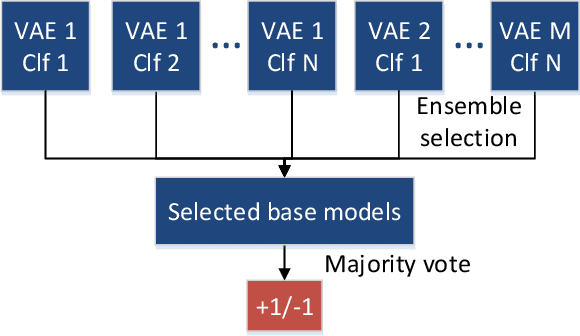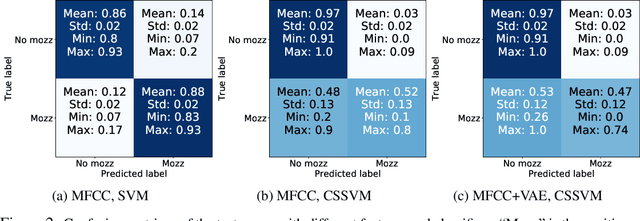Cost-sensitive detection with variational autoencoders for environmental acoustic sensing
Paper and Code
Dec 07, 2017

Environmental acoustic sensing involves the retrieval and processing of audio signals to better understand our surroundings. While large-scale acoustic data make manual analysis infeasible, they provide a suitable playground for machine learning approaches. Most existing machine learning techniques developed for environmental acoustic sensing do not provide flexible control of the trade-off between the false positive rate and the false negative rate. This paper presents a cost-sensitive classification paradigm, in which the hyper-parameters of classifiers and the structure of variational autoencoders are selected in a principled Neyman-Pearson framework. We examine the performance of the proposed approach using a dataset from the HumBug project which aims to detect the presence of mosquitoes using sound collected by simple embedded devices.
 Add to Chrome
Add to Chrome Add to Firefox
Add to Firefox Add to Edge
Add to Edge